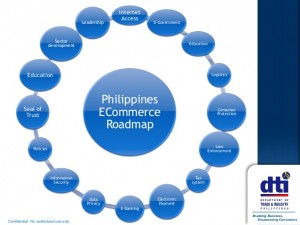
(MANILA) The Philippines’ E-Commerce Roadmap 2015-2020 aims to make the country’s Internet bandwidth faster and its tax system “friendlier” for micro, small, and medium enterprises (MSMEs), an e-commerce advocate and expert told Asia-Pacific Economic Cooperation (APEC) participants here Thursday.
During the APEC Public-Private Dialogue on Women and the Economy, held at the Philippine International Convention Center, Janette Toral of digitalfilipino.com, a website launched in 1999 that specializes in e-commerce, social media, and Internet marketing, highlighted the need to address a number of issues in the country’s e-commerce industry.
“Improving our infrastructure for the Internet and setting up businesses and making it easier for them (entrepreneurs) — making it easier for them to pay for their government dues — have to be enabled by the government,” she said.
The roadmap, Toral added, includes solutions to improving the country’s slow Internet speed, improving Customs barriers in terms of taxes and tariff rates, as well as making the tax system “adjustable” to the needs of the MSME market.
She said these adjustments in the country’s e-commerce industry would hopefully push MSMEs to be “more compliant in the process, as we move toward using e-commerce to make things better.”
Although many government agencies are utilizing e-commerce to make processes easier and faster, Toral said, more should begin accepting e-commerce as part of the process to provide access to MSMEs.
Last August, the Department of Trade and Industry (DTI), the lead agency of the e-commerce roadmap, launched the BIMP-EAGA Submarine and Terrestrial (BEST) Cable System to boost the participation of MSMEs in Mindanao.
The BIMP-EAGA is the Brunei-Indonesia-Malaysia-Philippines East ASEAN Growth Area.
DTI Undersecretary Prudencio Reyes, Jr. said high Internet cost and slow connectivity hold back MSMEs from participating in efforts to strengthen the economy through harnessing e-commerce.
He noted that less than 30 percent of the total 97 percent businesses in the country use the Internet to market their firms in the global market.
“The e-commerce roadmap is setting the direction as to how we should implement e-commerce in this country and make it possible, and make it easier for young entrepreneurs,” Toral said. (acg)








